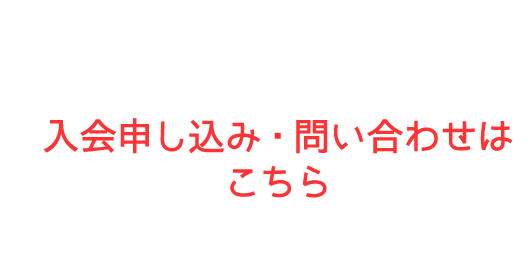いま伝えたい――朴 愛玉さん
パク エオク ・ 広島で被爆
| ・文章のダウンロード (日本語・PDF) |
・英文のダウンロード (English・PDF) |
私は日本でこうして生きてきた
昭和15年(1940年) 私たち一家は朝鮮慶尚北海の故郷から日本にやってきた。
朝鮮では百姓をやっていた。しかし、月のうち15日は勤労動員に出なければならなかった。また芝を供出しろ、とよく指示があった。そのたびに、夫はあてどなく芝さがしに歩きまわったものである。
米をつくると重い供出で、家で食べる米は一粒も残らなかった。税金も重かった。
なにやかやと重なって、朝鮮ではどうしても食えなくなった。同じ苦労をするのなら、日本へ行って苦労をしようということになり、からだ一つで日本に来た。
日本へきてからは、山口県の小野田炭鉱で働いた。労働ははげしかった。夫が体を悪くしたので広島へきた。そこでもひどい暮らしが続いて、戦争の終りの頃、私たち一家は“きび”を食べて暮らした。箒をつくる材料の“きび”である。
7月31日に、4人目の子どもが生れ、8月6日に原子爆弾が落ちた。当時わが家は、牛田町の山すその坂道にあった。
家は爆風のためガラスはこわれ、くずれてしまって住めなくなった。
その頃私たち一家の外に、18才の甥がいっしょに住んでいた。甥は常盤橋で被爆して足を折り。
全身火傷をしてはうようにして家に帰って来た。長女はガラスの破片で傷だらけになった。
産後の私はどうしようもなく、夫は牛田山の兵舎のこわれた材木を運んで、バラックを大急ぎでこしらえた。
甥は十日ばかりで死んでしまった。かわいそうでならなかったが、仕方なくそのまま牛田山に理めてやった。
幸い私たちの子どもはどうやら元気になり、まあまあということだったが、食べさせることが大変だった。
砂糖の配給があれば、そのまま売ってしまった。仕事がしたくても朝鮮人はやとってくれない。 仕方がなくてヤミ米運びで生活をした。農家へ米を買いにいっても、日
本人の値段では売ってくれないので、高い値段で買ってこなければならず、ヒビの飯ばかり食べてくらした。
その頃、一番辛かったのは「朝鮮人は朝鮮に帰れ」「朝鮮で日本人は終戦のとき半殺しの目にあった」というような言葉を聞くことだった。
原爆で被爆した友人の多くは、終戦になって故国朝鮮に帰っていった。
考えてみると、被爆前も後も、私たち朝鮮人の暮しは殆んど変らなかったように思う。
昭和26年(1951年)私たち夫婦は揃って失対(失業対策事業)にでて働くようになった。
朝鮮人だから賃金は最低で、差別されながら生きてきた。今は、相生通りに住んでいるが、ここには朝鮮人が300世帯住んでいる。
子どもたちは大きくなり、それぞれ独立している。被爆当時の苦しさ程ではないが、今も決して生活は楽ではない。
(1964年第1集より)
【英訳/English】
This is how I have lived in Japan
Pak E O
In 15th year of Showa (1940), our family came to Japan from our native place Gyeon- gsangbugdo, in Korea. There, we engaged in farming but delivering breed to do compulsory work for half of each month. Often we were assigned to delivering brushwood. Whenever we had the assingnment, my husband used to wander about looking for the brushwood, in harvest time,obeying command to deliver rice, a grain of rice not left for us to eat. Also severe was tax.
For one reason or another, we could not live on in Korea. We thought it better to go over severe was tax. to Japan even if we had to work hard in the same way. Then we crossed the channel em handed.
and Japan, we worked at Onoda Mine in Yamaguchi prefecture. The work being very hard my husband broke down in health and we moved to Hiroshima. Here, too, our life was por In the last stage of the war, we lived on millet, from which brooms were made,
I gave birth to my fourth child on July 31, 1945, and the Atomic Bomb fell on Aug, 6. At that time our house stood on a slope at the foot of a mountain in Ushita-cho. Through the bomb blast, our house lost all its window panes and fell down. So we lost our place toline In those days, my 18-year-old nephew lived with us. When he was caught by the bomb te Tokiwa-bashi Bridge, he broke his leg and was burnt all over the body. But he came home on his hands and knees. My eldest daughter was wounded by splinters of glass.
After childbirth, I could do nothing. My husband brought broken wood from the barrals on Ushita-yama Hill and hastily made a hut. My nephew died ten days later. It was no use pitying him. we buried him. Fortunately, our children recovered their health. It wasn’t the bad, but to bring them up was very difficult. When we got sugar rationing, we used to sell it just as it was.
We wanted to work, but Koreans were out of employment. Not being able to find any other livelihood, we made a living out of carrying rice for black-market dealings. When we went to a farmhouse, the farmer did’t sell rice to us Koreans at the same price as Japa nese buyers. We had to buy it at a high price. Day after day, we ate millet. At the time. we were very hurt hearing the words “Korean, go home,” or “The Japanese in Korea were nearly killed at the time of the end of the war. Since the end of the war, most of our friends who were caught by the bomb have gone home.
Considering my life, the life of Koreans was changed little by the Atomic Bomb.
In 26th year of Showa (1951), my husband and I began to work together at the unem ployment relief work. Being Korean, the pay was the lowest. We were discriminated gainst. Now we live in Aioi-dori Street, where 300 Korean households live. Our children have grown up and they already support themselves. Though my husband and I don’t havesuch trials as we had in the time just after the bomb fell, we still struggle against a hard life.

.png)



